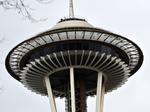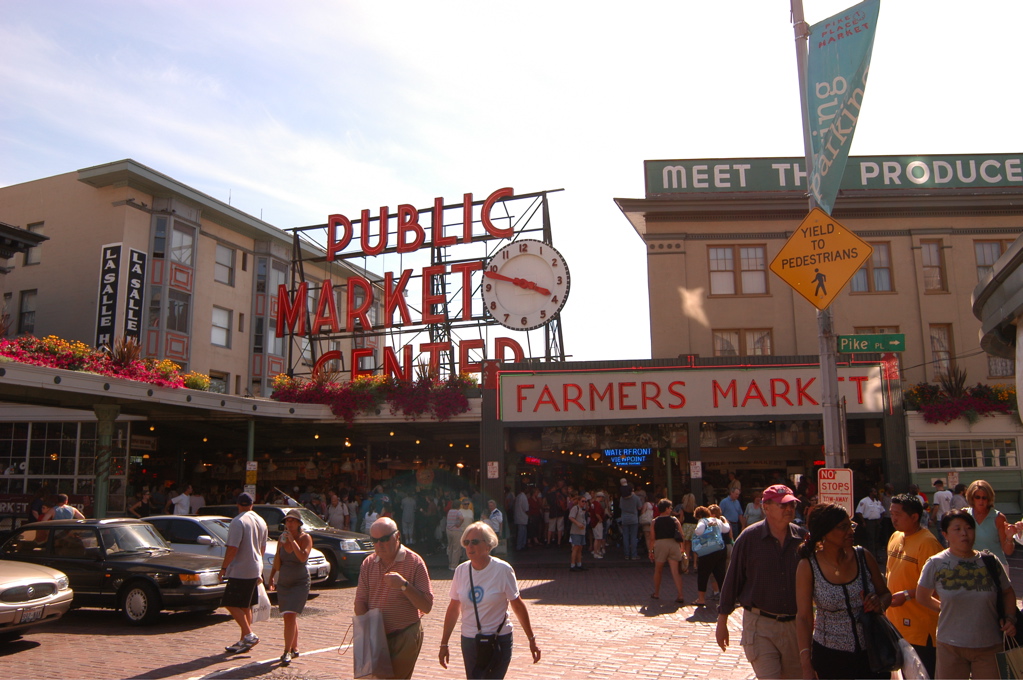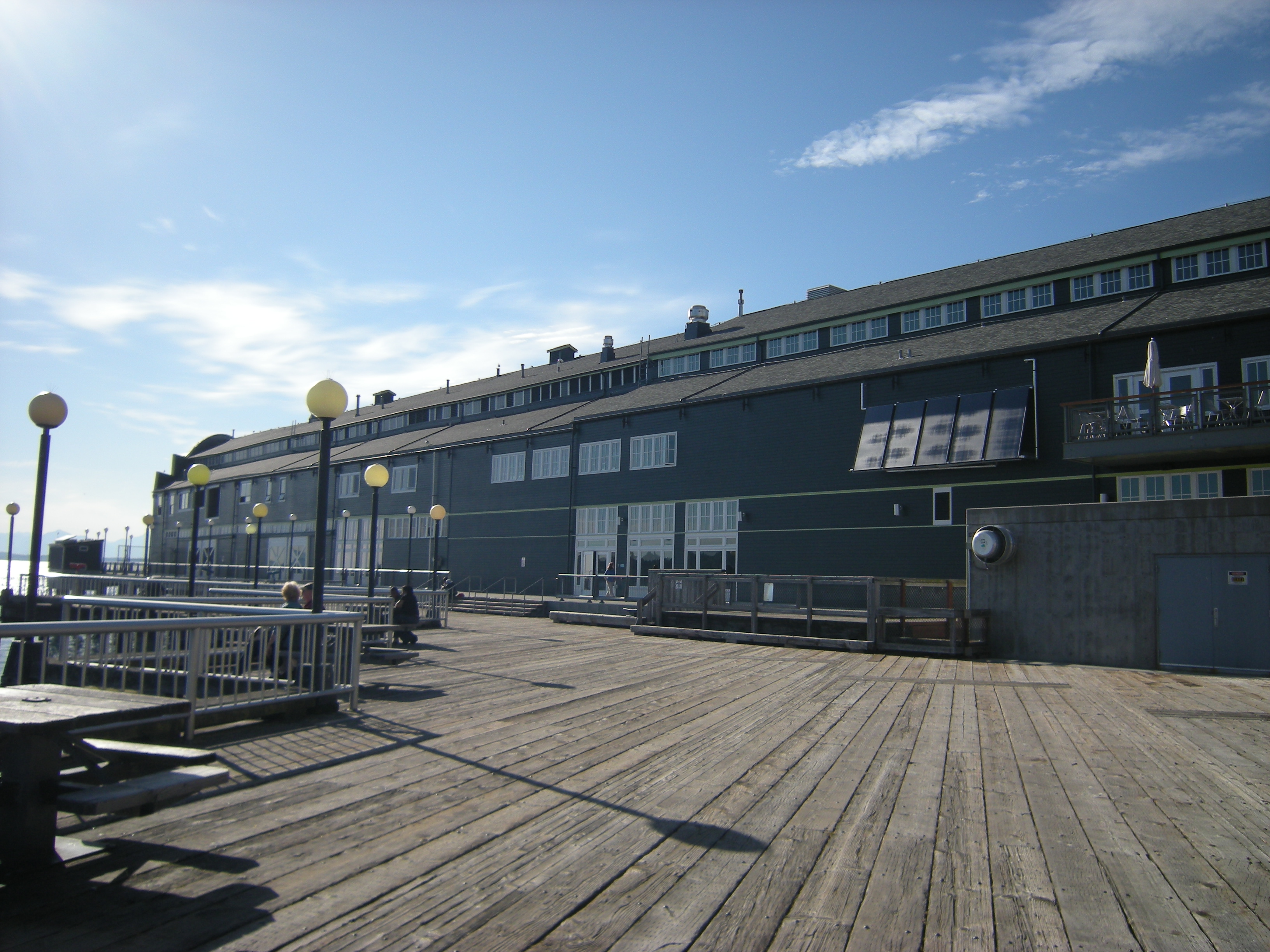Post by Finch on Dec 8, 2020 0:02:14 GMT
The City Council:
Though the city council of Seattle has long since fallen, a governing body, of some sort, has since risen up in its place. They call themselves simply “The City Council,” though most kids around the city know them by names that most would consider to be far more demeaning.
The city council comprises a group of kids, who have taken up residence in the Space Needle. When the initial chaos died down, and the dust settled, the city council were the first to truly set up a system of order. Anarchy was quelled within their ranks, and they wrote down a code of laws- the first in the newly-destroyed city.
Though these kids spend most of their time in the Space Needle to protect themselves, their stronger members occasionally leave to scavenge in the cityscape below. In recent times, however, pickings have been growing slim, and the scavenging parties have begun returning to their home empty-handed.
On the inside, the city council views themselves as the pinnacle of, and in fact, the only remaining pillar of order. They believe that the world must be governed by strict laws, laws that they are not afraid to attempt to impose on outsiders. From the outside, most kids in Seattle view the city council as stuffy and stuck-up, but not much of a real threat. Not yet, at least. To outsiders, the kids of the city council are known as Councilkids.
Due to their association with law and order, the Council’s abilities mainly revolve around defense. A single Councilkid, if they have at least some practice in magic, can create a forcefield around an object that is the size of a fist or smaller. A small group of Councilkids can create a forcefield around themselves. The size and strength of their forcefields scales with the amount of kids investing magical energy in the field. For example, with the combined power of every Councilkid, they could create a shield around the space needle for a short time.
Legion:
After the fall of civilization, many independent philosophies developed. The philosophy of order, the philosophy of equality and rebuilding. None of these apply to Legion. Beyond that, a significant percentage of them likely do not know the definition of ‘philosophy.’
Instead, the Legion follow a very simple law of nature: Survival of the fittest. The Legion are a loosely organized group, who have made their home in Seattle’s Pike Place Market. They have not attempted any kind of food production, and mostly depend on scavenging and hunting.
Due to their aggressive nature, the Legion has quite a bad reputation. They are thought of as violent, stupid, and cruel. However, their skill at fighting proceeds them just as much as their reputation does. In a fight, just about anyone would be happy to have a Legionnaire at their side. They are also known for providing fresh meat, a commodity that has become quite rare.
Legionnaires have the ability to enhance their natural combat abilities, and are considered to be the most naturally magic inclined faction. Alone, a single legionnaire may be able to increase the force of their blows, or dodge the blows of their opponents with almost supernatural skill. Together, a group of legionnaires may be able to multiply the power of one of their allies. Additionally, legionnaires have the ability to forge weapons, made of magical energy.
The Pacifics:
While the Legion views life as a game of survival of the fittest, the Pacifics view life as survival of the smartest. The Pacifics are a group of kids living in the Pacific Science Center. They often refer to themselves as a “thinktank,” and hope to use the equipment available in the science center to find not only the cause of the disease, but a cure for it, as well.
The kids making up the Pacifics have a variety of skillsets, and some do not have a background in science at all. In fact, a large portion of those identified as the Pacifics do not consider themselves scientists, at all. Some would go as far as to call themselves the opposite.
When the disease first took over, two groups of kids settled in the Pacific Science Center. One had come from a nearby catholic school, while the other came from a day camp hosted by SpaceX. As more kids migrate to the science center, they tend to align themselves with one of these two factions.
From the outside, though, these two factions are seen mostly as the same group. The Pacifics have a reputation of being soft and weak, but their academic knowledge is unrivaled. In a medical emergency, most kids, even those of enemy factions, would not hesitate to bring the injured to the Pacifics. In the best case, the injured can be saved by the academics, and in the worst case, the most religiously inclined can at least perform a proper burial.
These two groups are always at each other’s throats, but their abilities keep an uneasy peace between them. The Pacifics have abilities related to knowledge of the future. A single Pacific has a heightened intuition, and their “gut feelings” are almost always right. However, these intuitions only apply to the current situation, or the very near future. Together, a small group of Pacifics can predict things further in the future. Additionally, The Pacifics have the power to walk among the dream realm. A small group of Pacifics, or a single Pacific who is very skilled in the magical arts, can choose to walk in the dreams of another.
The Pacifics are known for their magical abilities, which are, arguably, the most powerful out of any faction. However, gaining the group cohesion needed to perform a more powerful spell is practically unheard of, severely limiting their magical abilities in practice.
The Kids of the Pasture:
The Kids of the Pasture, or the Pastoralists, have a widespread reputation of being tree-huggers. They are based in the Chihuly Garden and Glass Museum, where they sleep. During the day, the majority of them find themselves working on their farms in the nearby Neototems Children’s Garden.
The Pastoralists are the only group to keep animals as a core part of their group structure. In their Museum, they have set up a sort of makeshift barn, where they have small groups of cattle, pigs, sheep, and horses.
The valley is “led” by a troop of horse riders, who graze their horses in the nearby vast grasslands. These riders are known as generally being kind, and are often even called The Goddesses. They have a reputation of taking in younger kids under their wings.
This place has an atmosphere of peace. Zombies are not a major threat, though they do sometimes appear. The Goddesses are religious leaders, and preach the teachings of The Core, a deity that supposedly lives in the Earth’s center. All plants are connected to this deity via their roots. The roots feed her, and, in return, she feeds the plants and the things that eat them. The plague was caused by a sickness within the Core. The Core is still sick, and in order to heal it, they must provide her with plants.
Due to these teachings, the whole garden is absolutely filled with plants. The vast majority of the manpower expended in the garden is used for planting new seedlings, or taking care of the plants and animals.
Despite all this, the valley is not perfect. They are less organized, and therefore by the time reinforcements can arrive to deal with zombies, it’s already too late. Additionally, due to living among animals, disease is rampant. Food is plentiful, but nothing else is. Not only that, but their food is always being stolen by other groups. Their vicinity with the City Council in the Space Needle often puts the two groups at odds when it comes to scavenging spots.
Unsurprisingly, the Kids of the Pasture have abilities relating to the care of animals. While one Pastoralist may be able to calm a spooked horse or get a dog to fall asleep, a group of them can lead a herd of animals in a particular direction. In addition, rumors have been floating around that, perhaps, the Pastoralists have control not over animals, but humans too. An urban legend about a Pastoralist erasing a Councilkid’s memory has made many other groups stay away from them.
The Jackals:
Also known as the Subway Kids or the Rat Kids, the Jackals are one of the largest groups, but also the least known. The Jackals make their home in the Seattle Central Monorail Station, though they are known to live along the monorail tracks, and in the monorail cars as well. The Jackals are notoriously clever, thus their name.
Amongst themselves, the Jackals tend to have trouble cooperating, and split themselves into duos and trios rather than being part of the larger group. Unlike other groups, the jackals do not have a consistent leader, but rather have multiple leaders, all fighting for power.
They have made no attempt to begin producing their own food, and therefore they survive on scavenged food. They have been known to trick other kids into giving them their hard-earned food, though they rarely attack. To outsiders, the Jackals have a reputation of being selfish and deceptive, and they carry no positive reception with them.
The Jackals have the ability to create illusions and otherwise distort the perceptions of others. A singular Jackal can perform small feats of this, such as creating a small sound or making others see a small object in their hand. Together, small groups of Jackals can change the appearance of a person entirely. It is unknown as to what large groups of them can do, as no one has managed to get more than 4 Jackals to work together at the same time.
The Boardwalk Kids:
Though the outside world thinks of them as soft, the boardwalk kids are one of the best set-up communities in all of Seattle. They are based in the Seattle Aquarium, where they sleep, but during the day, they tend to spread out across the boardwalk.
Alongside their soft reputation, outsiders view the boardwalk kids (or boardwalkers) as brave and kind. They are afraid of very few things, and regularly swim in the ocean or scavenge in the areas of the city which others would consider too dangerous. They are known as being incredibly fast, and if a message needs to be transmitted quickly, a Boardwalker is the best one to carry it. Additionally, Boardwalkers are known to be master fishermen.
Despite their reputation of being well set-up and safe, the death rate among the Boardwalk Kids is quite high. While they are viewed as being brave for searching the forbidden areas of Seattle, the Boardwalkers themselves usually only do so out of fear. If any given boardwalker does not bring back a certain amount of food every day, they risk being exiled, or worse.
The Boardwalk Kids have the ability to affect the natural abilities of themselves and others. While a single Boardwalker may only be able to slightly improve their own speed or strength, a large enough group of Boardwalkers could likely increase someone’s natural powers without limitations.


 ... only busy
... only busy  Sorry for not posting yet. i will toss up a WIP tomorrow.
Sorry for not posting yet. i will toss up a WIP tomorrow.  icon in the bottom right bar (may not be applicable if you're on Forums.net), or you can disable the welcome window and/or the icon by going to Plugins > Manage > Custom Mini-Profile Creator and changing the Show Help option.
icon in the bottom right bar (may not be applicable if you're on Forums.net), or you can disable the welcome window and/or the icon by going to Plugins > Manage > Custom Mini-Profile Creator and changing the Show Help option.




















